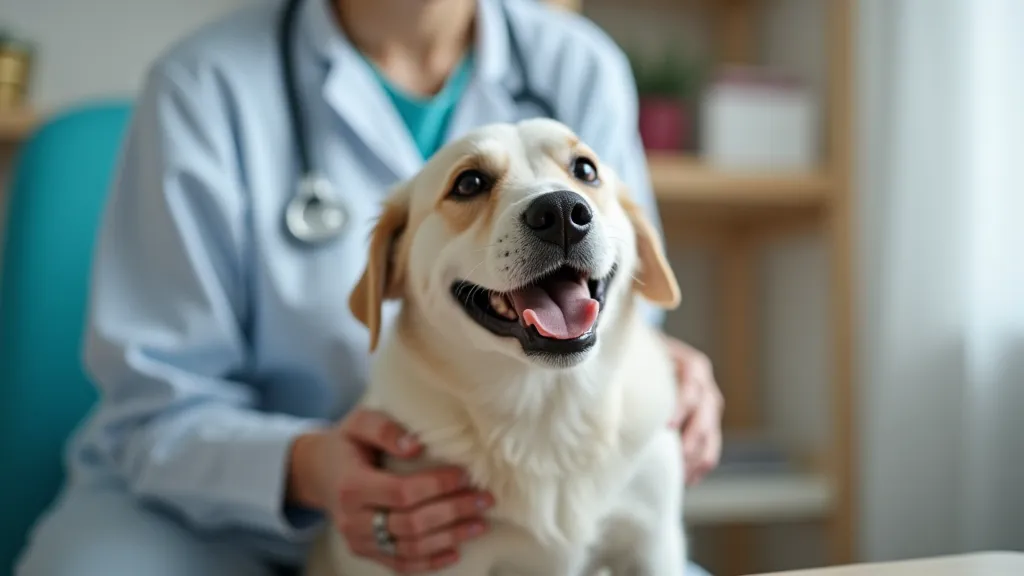Responsible Pet Ownership: A Guide to Ethical Dog Care
Bringing a dog into your life is a wonderful and rewarding experience. However, it’s more than just cuddles and playtime; it's a significant commitment that demands responsibility and dedication. Being a responsible pet owner goes beyond providing food and shelter. It’s about understanding and meeting your dog’s physical, mental, and emotional needs throughout their life. This guide will explore the core aspects of responsible dog ownership, helping you become the best possible pet parent.
1. Understanding the Commitment: A Lifetime Promise
Before even considering bringing a dog home, honestly assess your lifestyle. Dogs require considerable time, energy, and financial resources. Are you prepared for 10-15 years of commitment? Consider your living situation – does it allow dogs? Are there breed restrictions? Do you travel frequently? Having a dog is a long-term commitment, and sudden changes in your life can create challenges if you’re not prepared. Consider, too, the potential for health issues; knowing how to address common dog health problems early on is a key element of responsible ownership. Many dogs, especially those experiencing anxiety in shelter environments, need a stable and predictable routine to thrive. Ensuring that your lifestyle can consistently provide that stability is a crucial first step.
2. Providing Essential Care: Nutrition, Shelter, and Veterinary Care
The foundation of responsible dog ownership is providing for your dog’s basic needs.
- Nutrition: Feed your dog a high-quality diet appropriate for their age, breed, and activity level. Consult with your veterinarian to determine the best food choices. Consider your dog’s specific needs; for example, a high-energy working breed will require significantly more calories than a senior lapdog.
- Shelter: Provide a safe, comfortable, and clean living environment. This includes protection from the elements and a designated space for rest and relaxation. This goes beyond just a bed; it includes a temperature-controlled environment, protection from pests, and a comfortable, secure feeling of belonging.
- Veterinary Care: Regular check-ups are crucial for preventative care, vaccinations, parasite prevention, and early detection of health problems. Be prepared for unexpected vet bills, which can be substantial. Early and consistent veterinary care is vital, and often includes addressing dog grooming basics to ensure skin and coat health alongside overall wellness. Understanding and addressing grooming needs contributes significantly to a dog's comfort and overall health.

3. Training and Socialization: Shaping a Well-Adjusted Companion
Training isn't just about teaching tricks; it's about establishing clear communication, building a strong bond, and ensuring your dog is a well-behaved member of society. Early socialization is equally vital. Exposing your puppy (or adult dog) to various people, places, sounds, and other dogs in a positive and controlled environment helps them develop into confident and well-adjusted adults. Sometimes, achieving calm and well-adjusted behavior can require establishing routines, such as crate training your dog for structured rest and security. For dogs experiencing anxiety, crate training, when introduced properly, can provide a safe haven and reduce stress.
- Positive Reinforcement: Focus on positive reinforcement techniques – rewarding desired behaviors with treats, praise, or toys. Avoid punishment, which can create fear and anxiety. Punishment can often backfire, leading to increased anxiety and behavioral issues.
- Basic Obedience: Teach essential commands like "sit," "stay," "come," and "leave it." Consistent obedience training strengthens the bond between owner and dog and provides a framework for clear communication.
- Socialization Classes: Consider enrolling in puppy socialization classes or obedience training to gain professional guidance and provide opportunities for interaction. Properly managed socialization classes expose dogs to a variety of stimuli in a safe and controlled environment.
4. Responsible Breeding and Acquisition
If you’re considering adding a dog to your family, think about where you’re getting them from. Supporting responsible breeders who prioritize health testing and temperament is essential. Adopting from a shelter or rescue organization is another excellent option, giving a deserving dog a second chance at a loving home. Many dogs in shelters experience anxiety and require specialized handling. Addressing this often starts with establishing clear boundaries and routines. Understanding the challenges faced by rescue dogs and being prepared to provide the necessary support is a critical aspect of responsible adoption.
- Research Breeders: If purchasing from a breeder, inquire about health clearances, breeding practices, and the temperament of the parent dogs. Reputable breeders are transparent about their practices and happy to answer questions.
- Shelter/Rescue Adoption: Adoption provides a home for dogs in need and often comes with some basic veterinary care. Consider the possibility that a rescue dog might have unresolved behavioral issues and be prepared to address them with patience and professional help.
5. Legal Responsibilities & Safety
Being a responsible owner also means adhering to local laws and ensuring your dog's safety.
- Licensing: Obtain the required licenses and registrations for your dog.
- Leash Laws: Comply with leash laws in public areas.
- Identification: Ensure your dog is properly identified with a collar and tag containing your contact information, or consider microchipping.
- Safe Handling: Prevent your dog from causing harm to others or property. This also includes being aware of your dog’s body language and intervening when necessary to prevent potential conflicts.

6. Emotional Wellbeing: Beyond the Physical
A dog's emotional wellbeing is just as important as their physical health. Dogs are social animals and thrive on interaction, playtime, and mental stimulation. Lack of these can lead to boredom, anxiety, and behavioral problems. Just as physical grooming is important, so is addressing behaviors caused by stress or anxiety. Understanding the reasons behind dog barking can be a crucial part of providing emotional support. Barking is often a symptom of underlying anxiety or unmet needs; identifying the root cause is essential for effective management.
- Mental Stimulation: Provide puzzle toys, training sessions, and interactive games to keep your dog mentally engaged. Consider scent work as a fantastic and rewarding mental exercise. These activities not only entertain your dog but also strengthen the bond between you.
- Exercise: Ensure your dog gets adequate physical exercise based on their breed and energy levels. Breed-specific exercises are often important. A Border Collie, for instance, requires significantly more mental and physical stimulation than a Bulldog.
- Bonding: Spend quality time with your dog, providing affection, attention, and companionship. This can involve anything from cuddling to playing fetch. Consistent and positive interactions build trust and security.

Responsible pet ownership is a continuous journey of learning and dedication. It’s not just about the basics of food, shelter, and veterinary care; it’s about understanding their complex needs and enriching their lives. It requires ongoing research, adapting to your dog's evolving needs throughout their lifespan, and seeking professional help when needed. Consider the impact of your lifestyle choices on your dog’s wellbeing, from the types of toys you choose to the environments you expose them to. Furthermore, it is vital to recognize that different breeds have different predispositions and needs. A Great Dane, for example, will have vastly different requirements than a Chihuahua. By embracing these principles, you can provide your dog with a long, happy, and fulfilling life, and strengthen the incredible bond you share. Recognizing breed-specific predispositions to behavioral issues allows for proactive management and helps create a harmonious relationship.





